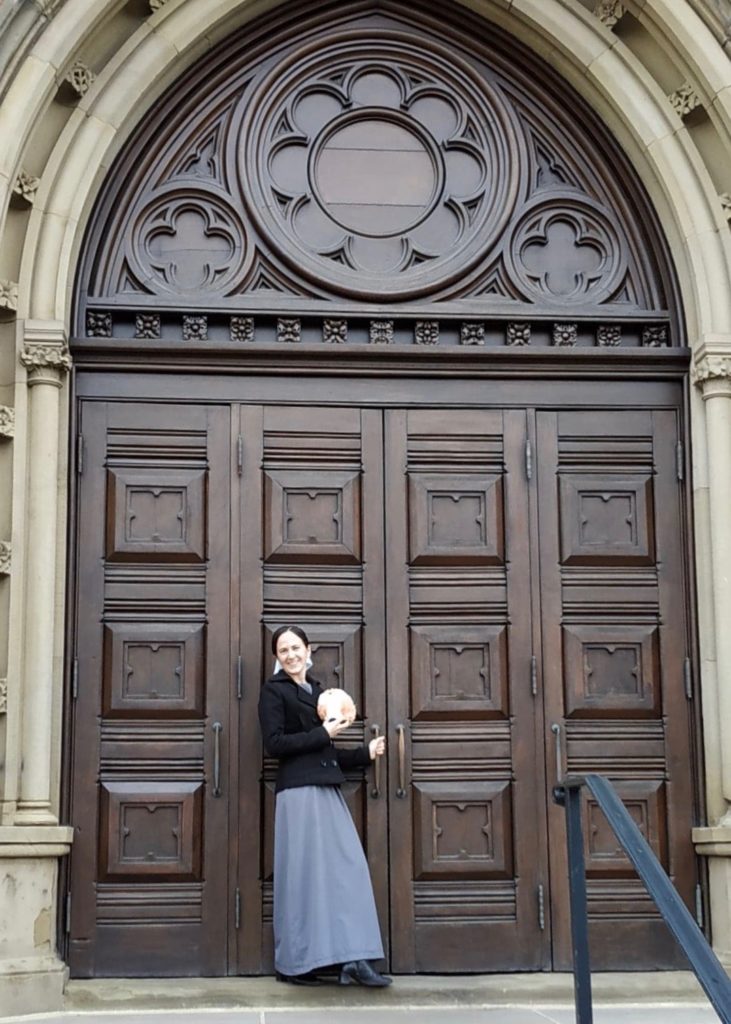I promised six weeks ago that I would make a practice of doing a round-up every six weeks of things I loved from that period. Looks like it’s that time, so here goes! This week, I recommend:

Boston Philharmonic: Okay, so I didn’t actually love the Boston Philharmonic that much, but my friends loved it, and I know I should have. In the right mood, I would have. I did love the fact that “Boston Philharmonic” has a prestigious ring to it, and that the particular concert I attended was held in Sanders Theatre at Harvard University—so I finally got to visit the Harvard campus—and that with my Sattler student ID, I only had to pay $10. As for the rest, I sorta had a headache at the time, and I was seated in the balcony, which is a very far distance from the tiny faces of the orchestra below. I am not a deeply music-oriented person, so you have to pull me in and hit me on the head with it to get me to appreciate it. My very favorite orchestra concerts have been when I was in the front row, or close to it—so close I had to crank my head up to see the orchestra members—and the music surrounded me, no getting away.
Book of Ages: The Life and Opinions of Jane Franklin by Jill Lepore. We have all heard of Benjamin Franklin, but how many of us have ever heard of his sister, Jane? He ran away from home to make a name for himself; she stayed behind—a wife, a mother, a widow—faithful to the people she served. He wrote a brilliant, sharply-styled autobiography which is nation-renowned today; she stitched together foolscap, recorded a few lines of births and deaths, and called it her Book of Ages. All their lives, they loved each other, all their lives exchanged letters—and yet, in his autobiography, he never mentions her.
“Her life is an allegory:” writes author Jill Lepore. “It explains what it means to write history not from what survives but from what is lost.” In the narrative nonfiction Book of Ages, Lepore cradles art and history in perfect tension, weaves fact and emotion, supposition and story into a unified and breathtaking whole.
Read this book.
The Souls of Black Folk by W.E.B. DuBois. “The problem of the Twentieth Century is the problem of the color line,” DuBois wrote in 1903, and the twentieth century proved him right. DuBois lived the struggle of that century from its beginning to its climax—he was born in 1868, just three years after the Civil War ended; and he died in 1963, just hours before Martin Luther King gave his landmark speech: “I Have a Dream.”
“One ever feels his twoness,” he writes in The Souls of Black Folk. “—an American, a Negro; two souls, two thoughts, two unreconciled strivings; two warring ideals in one dark body, whose dogged strength alone keeps it from being torn asunder.”
“…the Negro is a sort of seventh son,” he writes in another place, “born with a veil, and gifted with second sight in this American world.”
I have never experienced the degrading effects of racism, but I know what it feels to be torn between twoness. And I know a little of how it feels to be born on the other side of the veil, to be in that place where you can see out and understand the other world—but they cannot understand you. I am not saying I’ve experienced what he did, but in my own small way, I understand. For the rest, I imagine, and imagination is the beginning of empathy.
 Boston Common: I love the fact that I get to walk through Boston Common every day on the way to school. Now that it is winter, it is dark when I come home, and the Christmas lights are on. The lights, the people skating to music on the smooth gloss of a rink—enchanting, like fairyland.
Boston Common: I love the fact that I get to walk through Boston Common every day on the way to school. Now that it is winter, it is dark when I come home, and the Christmas lights are on. The lights, the people skating to music on the smooth gloss of a rink—enchanting, like fairyland.
Charlie of the Month: That’s him and me about to enter Sanders Theatre in the photo above, on our way to hear the Boston Philharmonic. Charlie—of course—loved it.

Your world is certainly expanding – happy to see this, Luci!
Thanks, Marian!
Thank you Lucinda for your update. I’ve never heard of the books you mentioned but they do sound interesting. In all my 57 years of living, I can only had a few ” in my face” experiences. One in particular, about 20 years ago, I was walking home from work and the highway ran parallel to the road. All of a sudden some guy in the passenger side of a large pickup yelled from the freeway an obscene name that included the “N” word and the “W” word ( the Bible name for prostitutes).
I will say, I was rather frightened because they exited the freeway and I thought they were going to come after me.
They didn’t but it’s scary to think what would have happened if they did.
That would have been an unsettling experience, for sure, and I’m sorry that person did that to you. Things like that make me angry–and I don’t get angry very easily–but I think it’s because they’re so completely unjust and arbitrary. There’s no way to “explain” it. Anyway, it’s good to hear from you, and thanks for sharing.
Pingback: To Boston and Back - Lucinda J Kinsinger